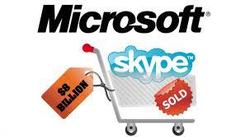 The New York Times carried an ominous story this week on the souring outlook for Barnes & Noble’s Nook business, portending perhaps its exit from the e-reader and tablet markets. The Nook’s decline comes despite its technical competence and the recent infusion of $600 million of capital by Microsoft. As the Times notes, “going into the 2012 Christmas season, the Nook HD, Barnes & Noble’s entrant into the 7-inch and 9-inch tablet market, was winning rave reviews from technology critics who praised its high-quality screen. Editors at CNET called it “a fantastic tablet value” and David Pogue in The New York Times told readers choosing between the Nook HD and Kindle Fire that the Nook “is the one to get.” Unfortunately, high marks from pundits didn’t translate into sales. Nook sales stalled over the Christmas season, losses mounted and profit and revenue guidance has been reduced. What happened? The Times article shares this explanation: “In many ways it is a great product,” Sarah Rotman Epps, a senior analyst at Forrester, said of the Nook tablet. “It was a failure of brand, not product. The Barnes & Noble brand is just very small.” I beg to differ. The Nook’s problems go far beyond B&N’s brand strength. There are three fundamental reasons for Nook’s failure that have implications for any company (and eventually this means every company) facing technology disruption:
 2. Disruption redux More broadly the Nook story is yet another example of how disruptive technologies transform value chains, destroying incumbents who no longer create value in the new industry order. With the advent of e-reading devices and digital publishing, book retailers and publishers are severely threatened. We’ve been to this dance before in the music industry, where incumbent retail leaders were essentially wiped out. For a variety of reasons, bookstores (if not the Nook) are likely to survive for quite some time, but only at a fraction of their former scale.Was B&N’s decline inevitable, given the transition from print to digital books? One could ask the same question of Amazon, whose dominance of book sales on amazon.com was equally threatened by e-reader technology. But to Jeff Bezos’ credit, Amazon chose to disrupt itself by aggressively launching the Kindle business, which quickly established itself as the dominant digital book platform. By the time B&N responded with its own Nook devices and e-bookstore, it was too late.The willingness to disrupt one’s own core business before someone else does it to you is a hallmark of inspired leadership. Bezos rules. 3. Stuff Happens! What’s up with Microsoft? As a play on the well known adage, “Disruption Also Happens”! In every industry, the question isn’t whether but only when. The only way to survive and prosper through successive waves of disruption is to be the disruptor, not the disruptee!One would think Microsoft would have learned this lesson by now. Over the past decade, Microsoft has managed to miss five of the most transformative disruptions in the high tech sector:
Bottom line: Serial innovation is the only proven antidote to the accelerating pace of disruptive technologies. It certainly looks like Barnes & Noble and Microsoft have not been up to the task.
0 Comments
Your comment will be posted after it is approved.
Leave a Reply. |
Len ShermanAfter 40 years in management consulting and venture capital, I joined the faculty of Columbia Business School, teaching courses in business strategy and corporate entrepreneurship Categories
All
Archives by title
How MIT Dragged Uber Through Public Relations Hell Is Softbank Uber's Savior? Why Can't Uber Make Money? Looking For Growth In All The Wrong Places Three Management Ideas That Need to Die Wells Fargo and the Lobster In the Pot Jumping to the Wrong Conclusions on the AT&T/Time Warner Merger What Kind Of Products Are You Really Selling? What Shakespeare Thinks About Brian Williams Are Customer-Friendly CEO’s Bad for Business? Uncharted Waters: What to Make Of Amazon’s Chronic Lack of Profits What Happens When David Becomes Goliath…Are Large Corporations Destined To Fail? Advice to Publishers: Don’t Fight For Your Honor, Fight For Your Lives! Amazon should be viewed as a fierce competitor in its dispute with publisher Hachette Men (And Women) Behaving Badly Why some brands “just don’t get no respect!” Courage and Faustian Bargains Sun Tzu and the Art of Disrupting Higher Education Nobody Cares What You Think! Product Complexity: Less Can Be More Apple's Product Strategy: No News Is Good News Willful Suspension of Belief In The Book Publishing Industry Whither Higher Education Timing Is Everything Teachable Moments -- The Curious Case of JC Penney What Dogs Can Teach Us About Business Are You Ready For Big-Bang Disruption? When Being Good Isn’t Good Enough Is Apple Losing Its Mojo? Blowing Up Old Habits What Is Apple's Product Strategy--Strategic Rigidity or Enlightened Expansion Strategic Inertia Strategic Alignment Strategic Clarity Archives by date
March 2018
|
Proudly powered by Weebly


 RSS Feed
RSS Feed